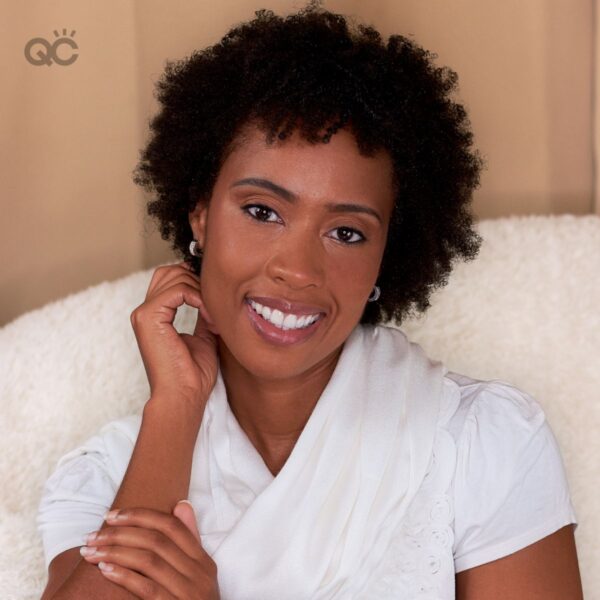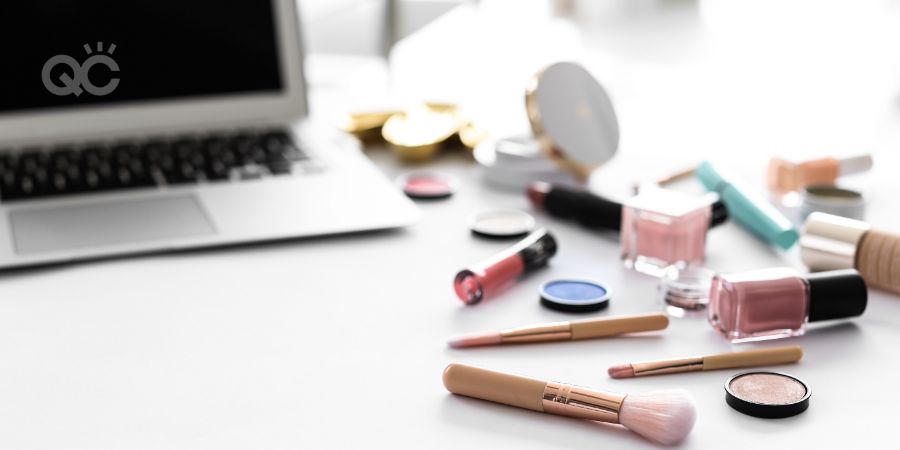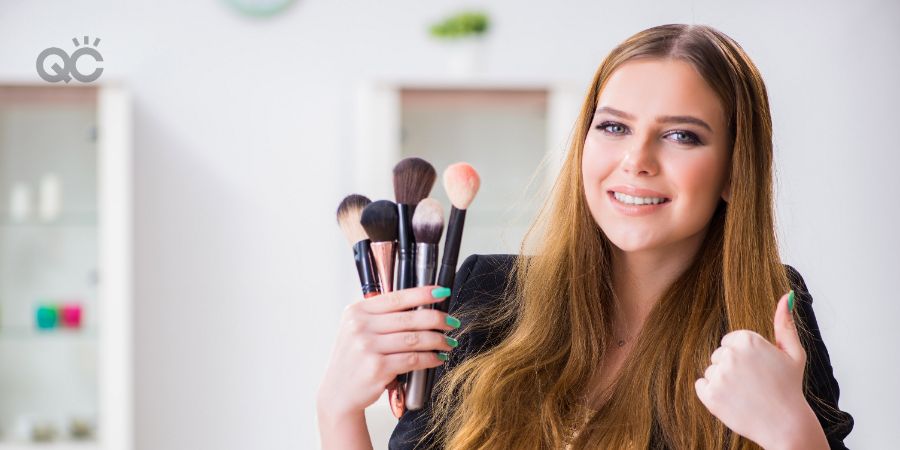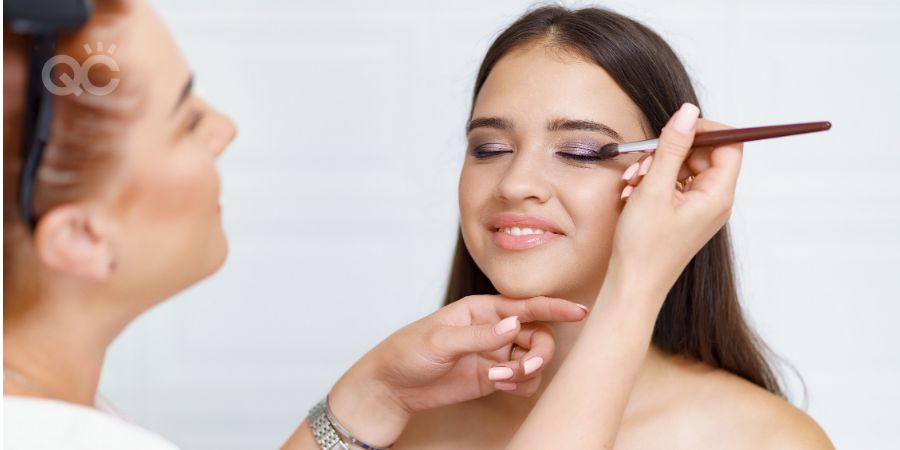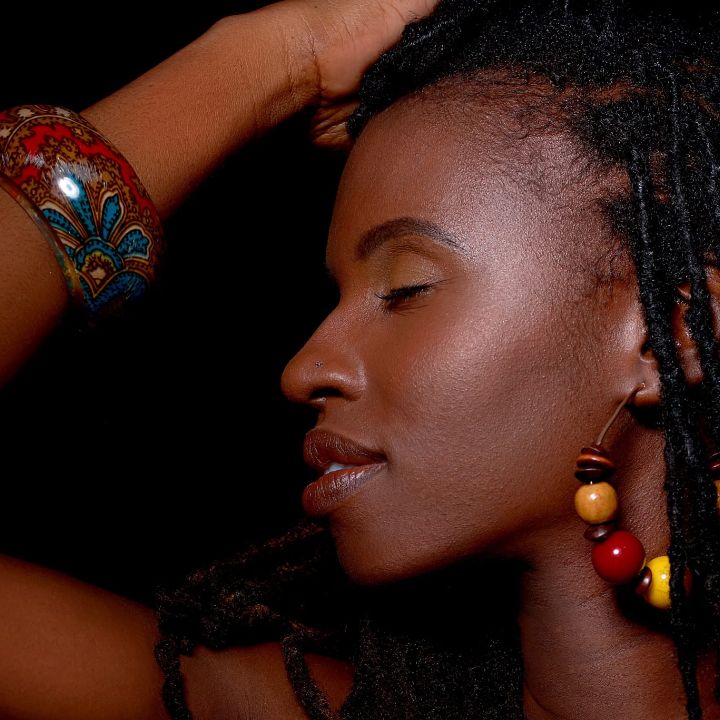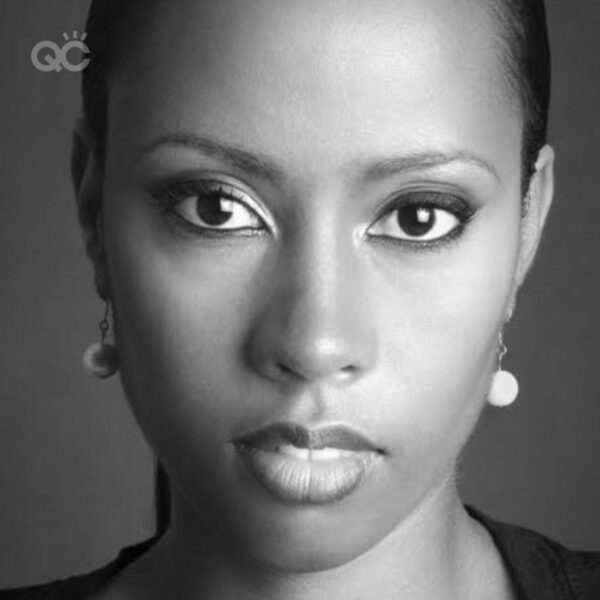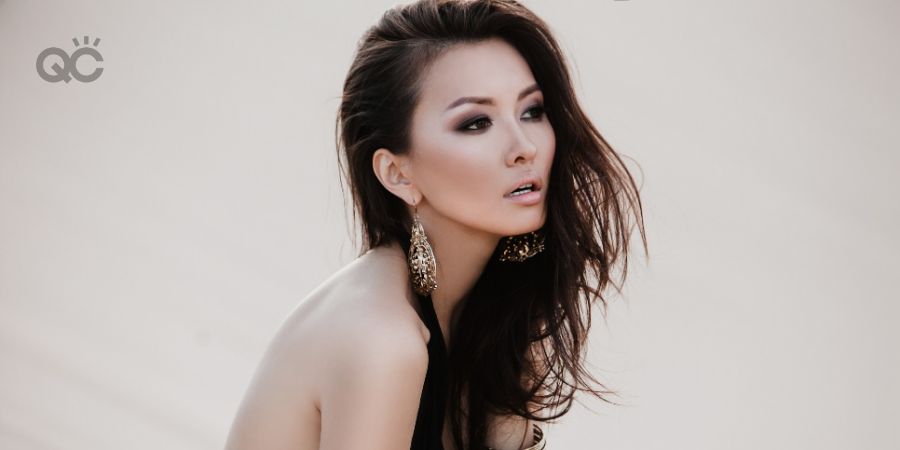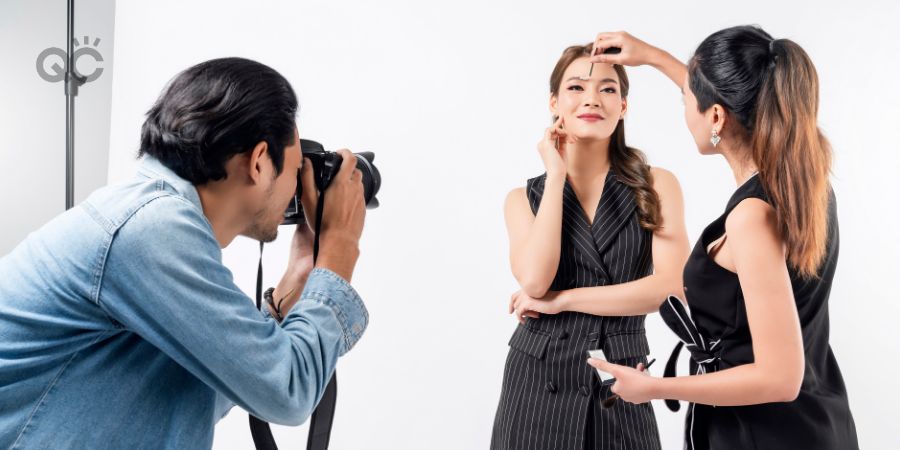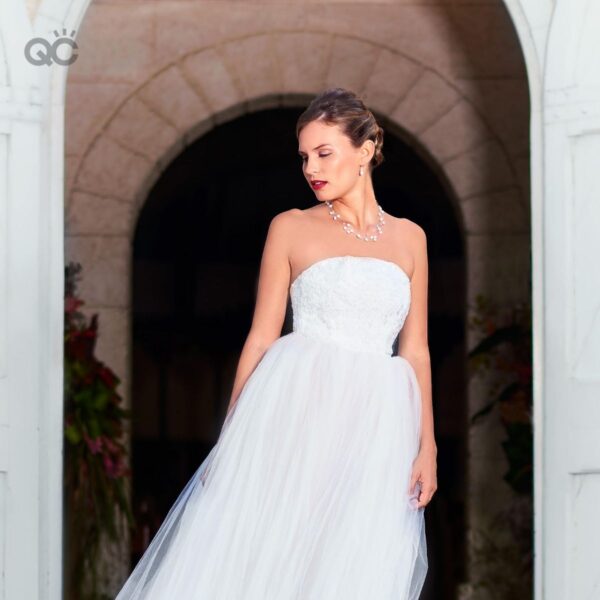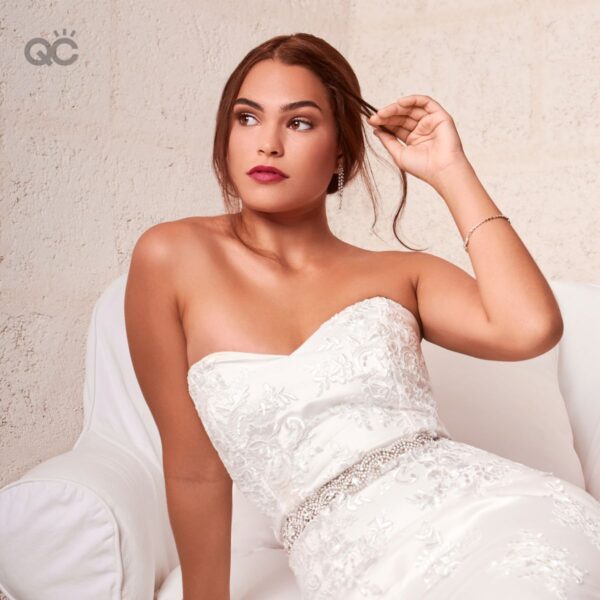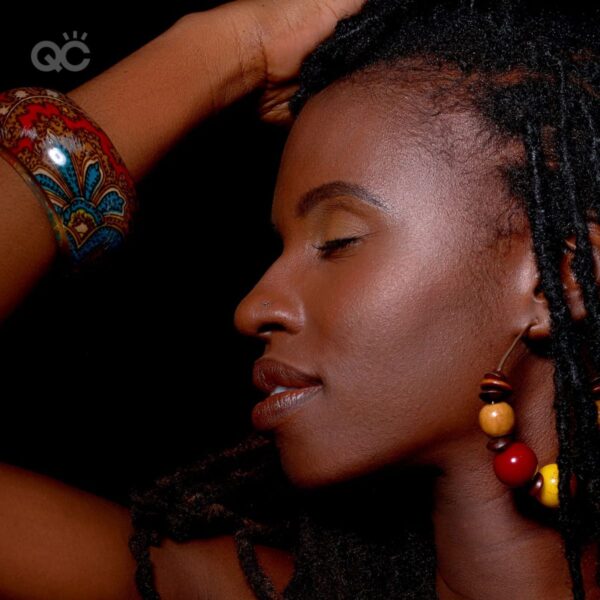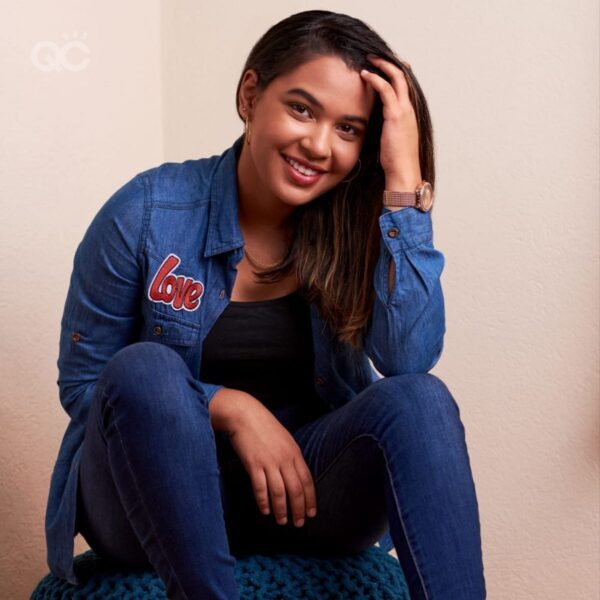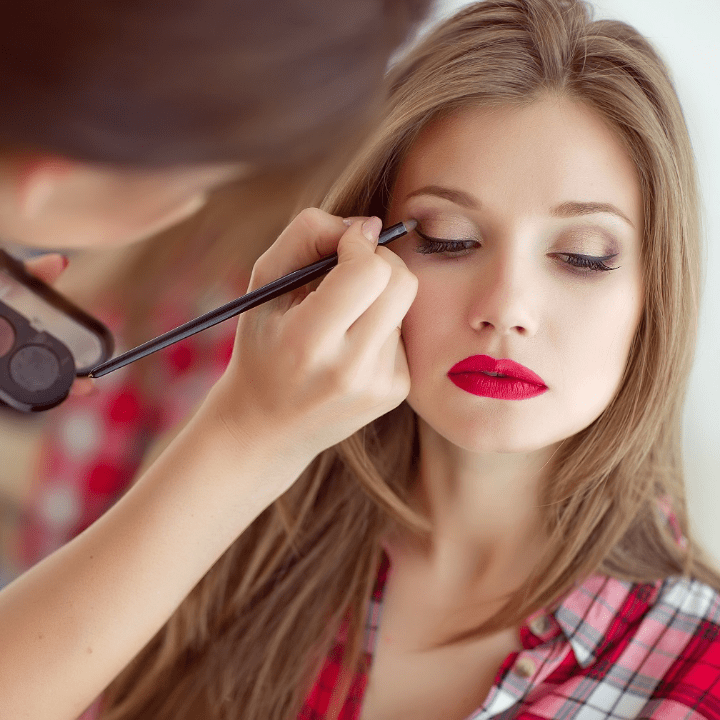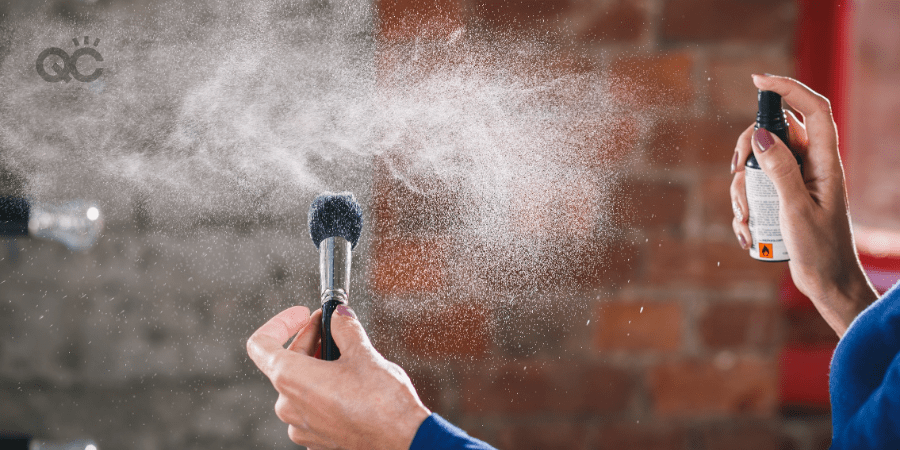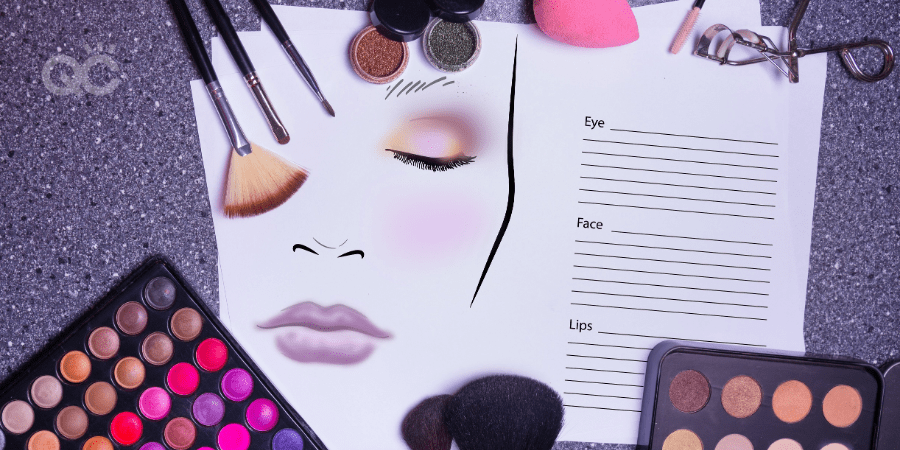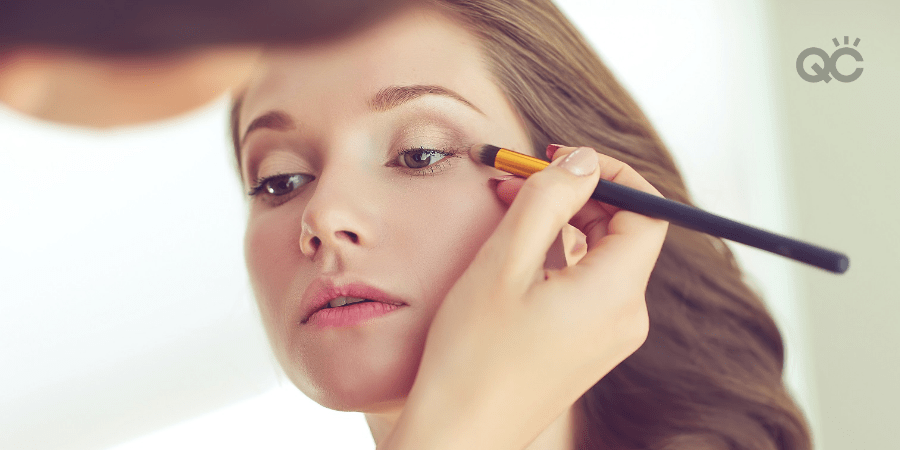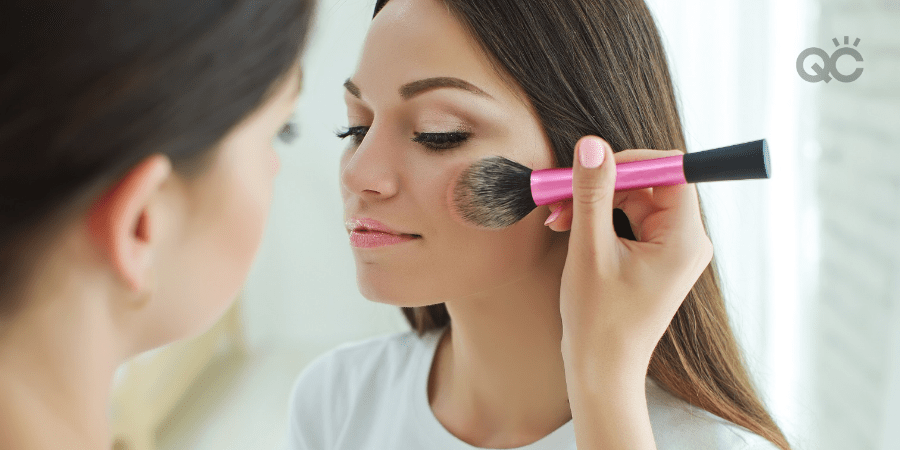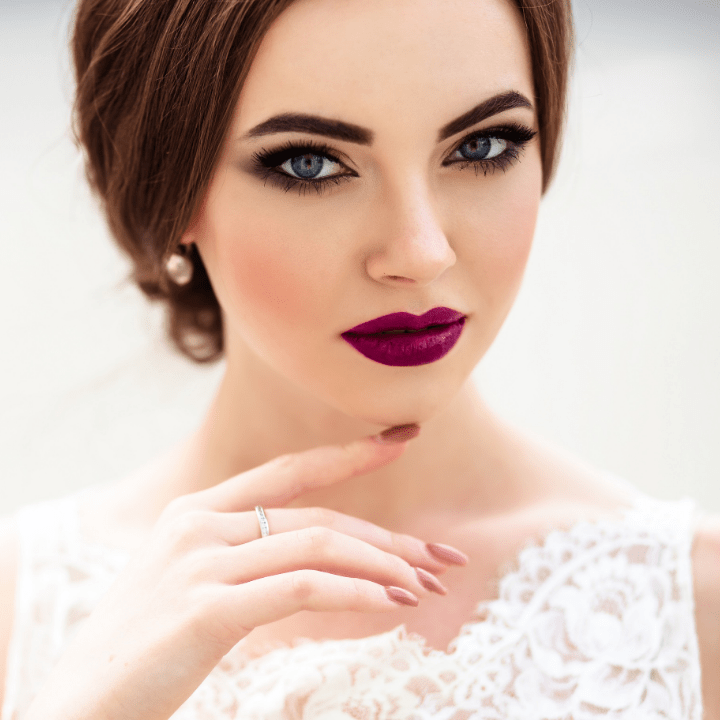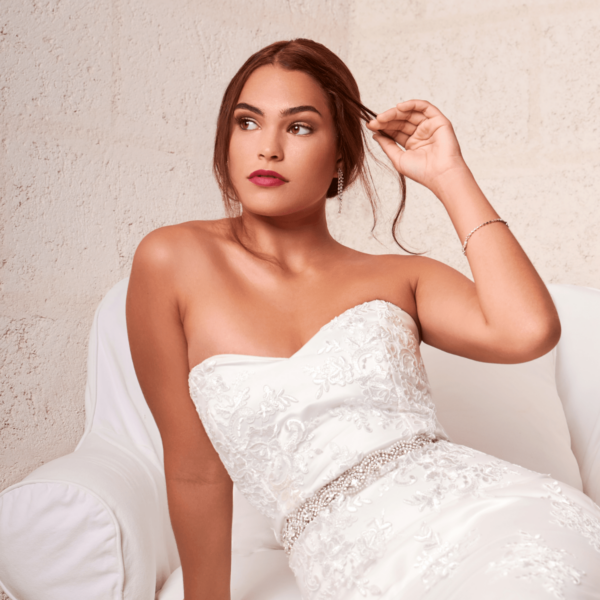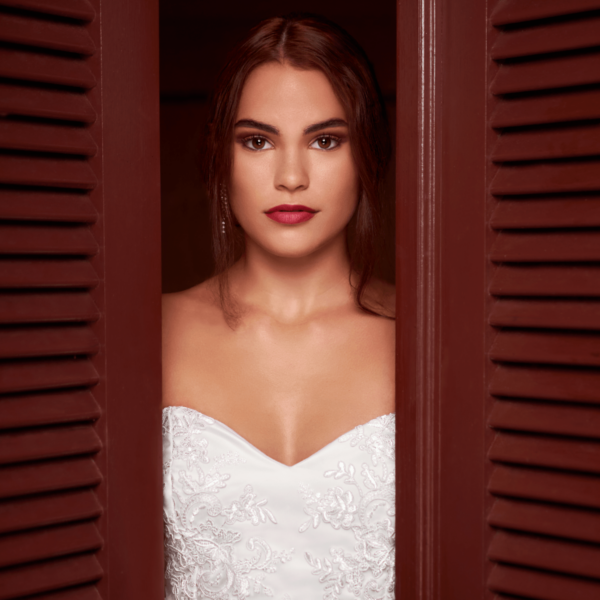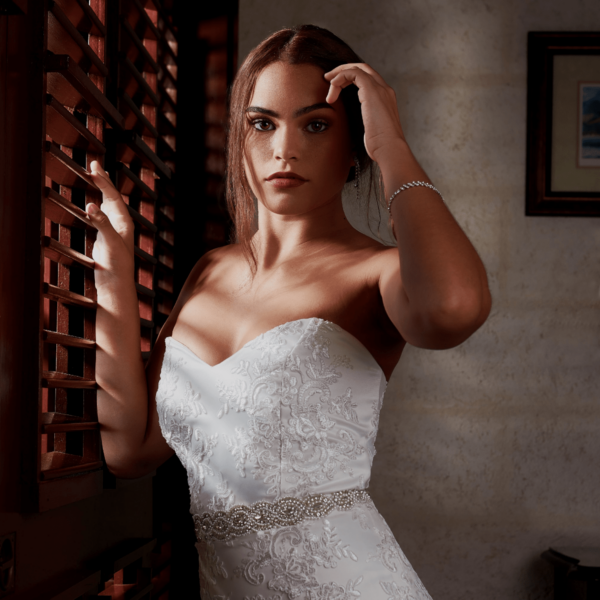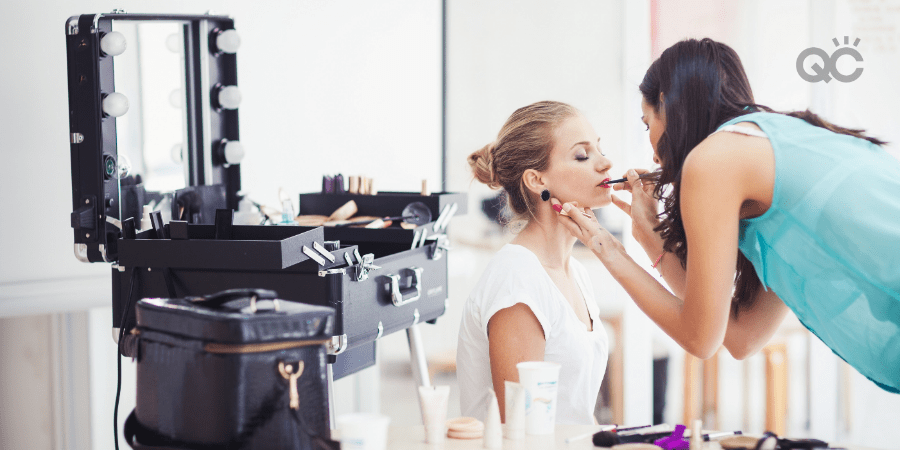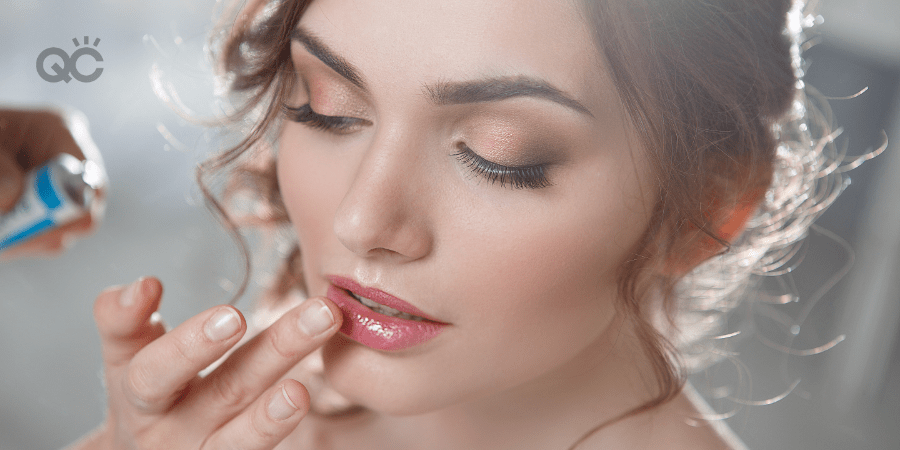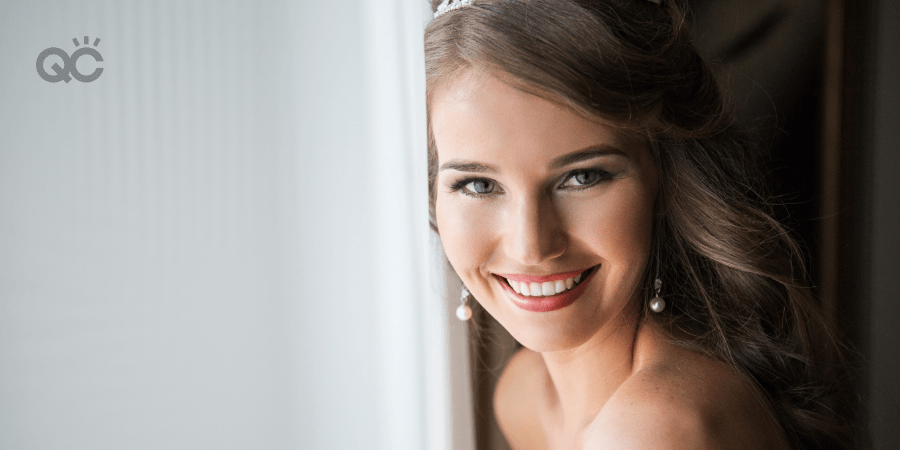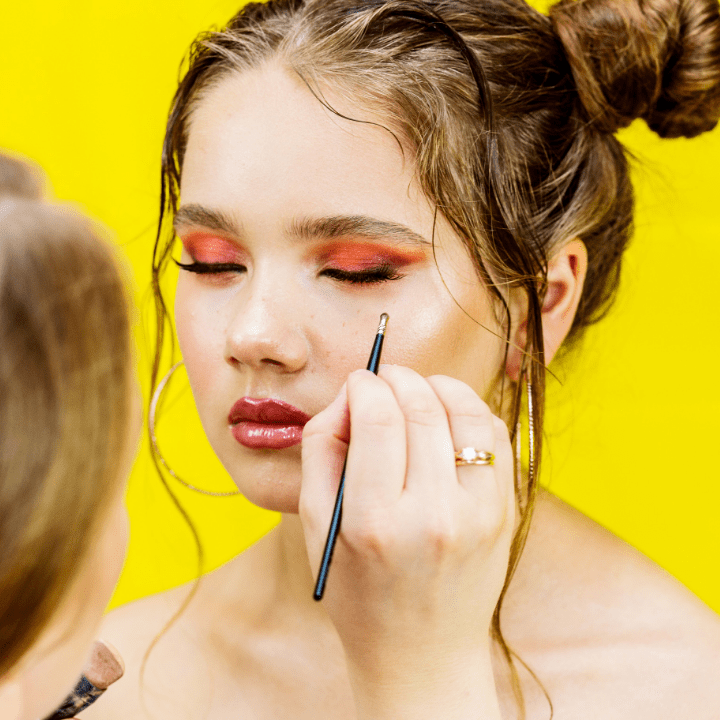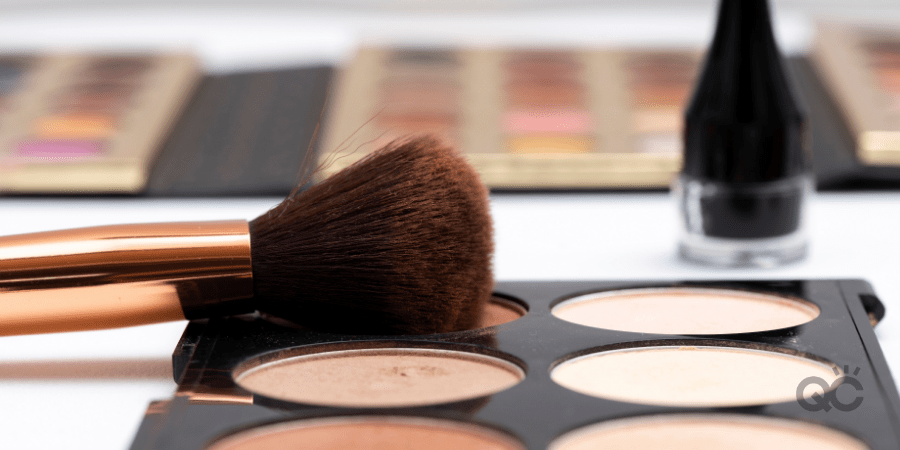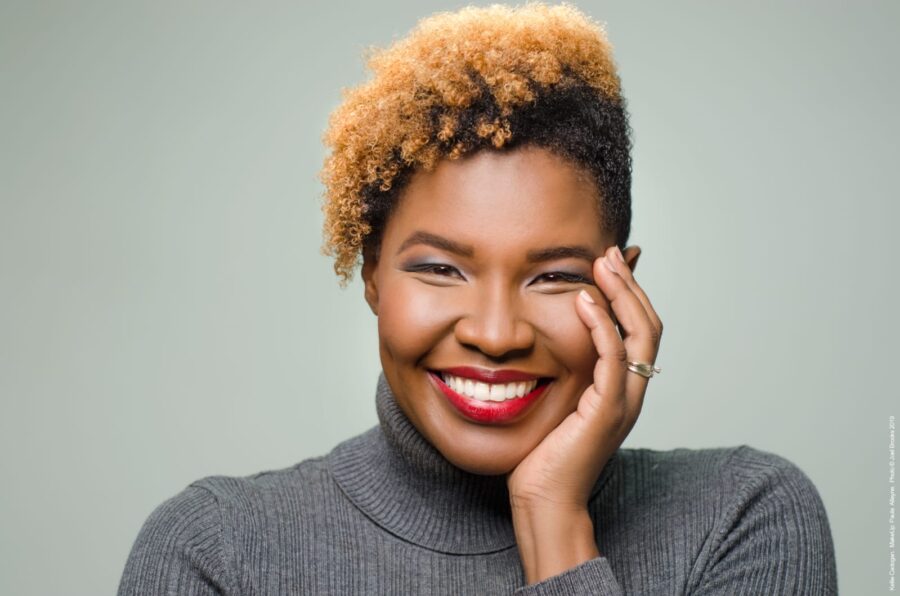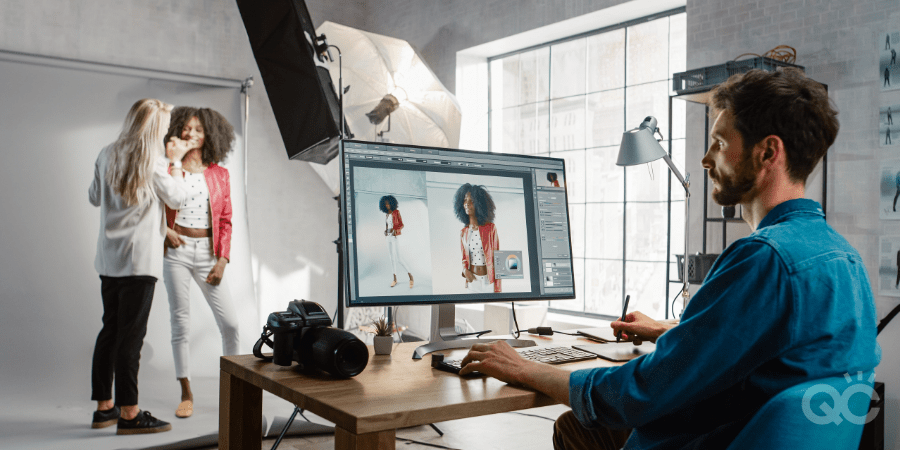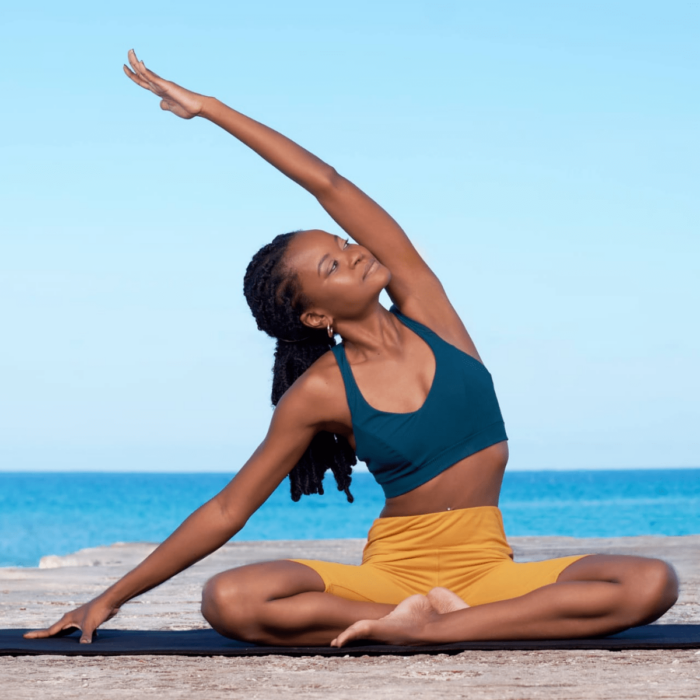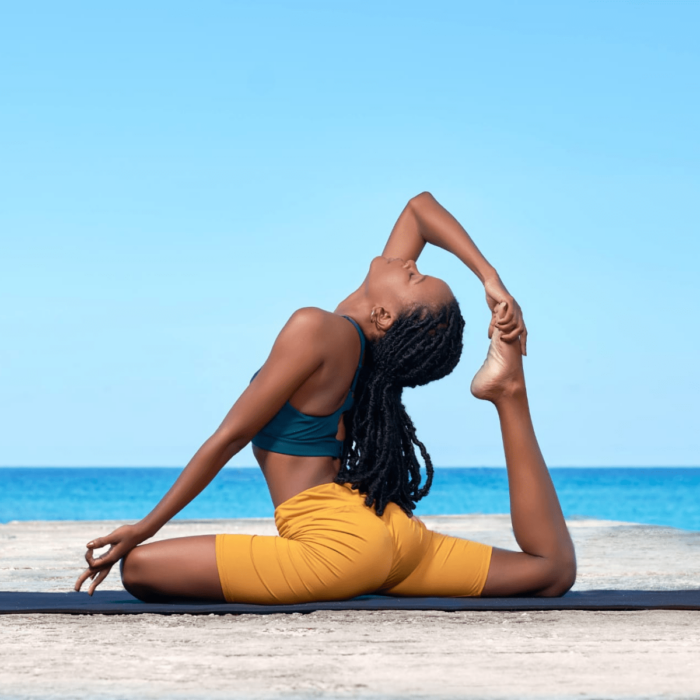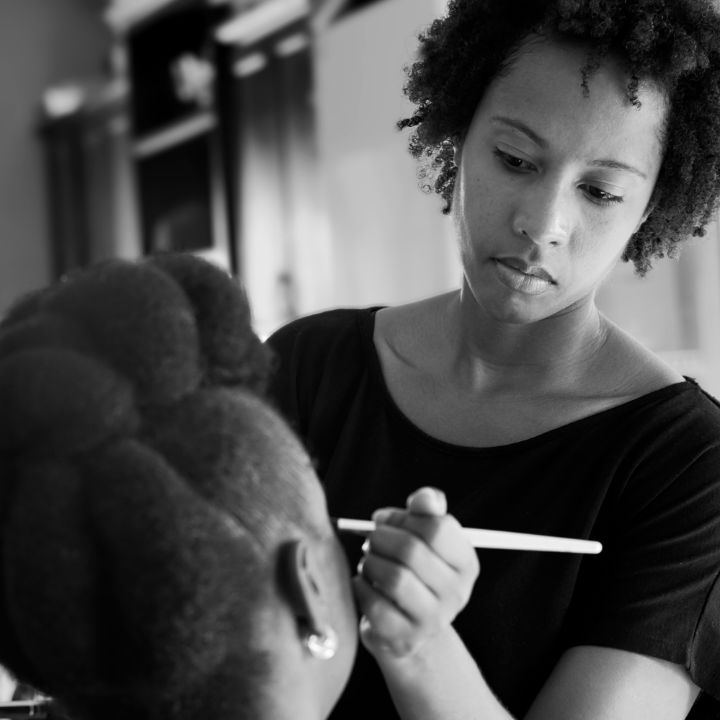
Want to start your very own makeup business, but not sure where (or how) to begin? QC Makeup Academy Student Ambassador, Paula Alleyne, is here to share her journey! Join her today as she reveals how she’s been finding clients and successfully building her business!
Paula is a graduate of QC’s Master Makeup Artistry Course. Her business, PAULA MONIQUE, specializes in bridal, editorial, and special occasions makeup. Connect with Paula directly in the QC Virtual Classroom on Facebook!

A Little About Me
Hi, everyone, my name is Paula Alleyne. I’m a Student Ambassador with QC Makeup Academy and I’m here to tell you about my journey so far as a certified makeup artist. The first question you may have is, “How will I know when I’m ready to start my own makeup business?” I’ll be honest, this answer varies for everyone. But for me, it started when I knew I wanted to earn an income from what was, at the time, just a hobby.
4 Things I Needed to Do BEFORE Starting a Makeup Business
In an industry such as this one, it’s extremely important to go into things fully prepared. Before I decided to start my own makeup business, for example, there were a few things I wanted to achieve first:
1. Gain a professional makeup education.
From the time I realized I liked makeup artistry, I practiced on friends and family members. I believed, however, that if I started charging a fee for my service, I shouldn’t be taking any chances. I wanted to be truly knowledgeable about what I was doing. The only way I knew I’d get to that level was through proper training. That’s when I began my search for different makeup schools and enrolled at QC Makeup Academy!
2. Purchase a camera.
These days, so many mobile phones are capable of taking beautiful, high-quality images. For this reason, it’s not uncommon to use them to snap a picture of our work. However, I quickly realized that my mobile phone (at the time) was not capturing – and thus, accurately reflecting – the quality of work I was doing on my friends and family.
It became frustrating that after all my efforts, the photos didn’t nearly do justice to what I was seeing in real life. Fortunately for me, my husband decided to take his photography skills more seriously and purchased a professional camera. I soon used his photography skills to capture the work I did on others, and the difference was like night and day!
Want to learn more about how to take amazing photos for your makeup business’s portfolio? Here are 5 more tips!

3. Develop a strong portfolio, to be used for my makeup business.
In my recent blog article, Breaking Down My Makeup Portfolio, I provided tips in developing your very own portfolio. With my husband developing his photography, and my decision to start a campaign of bridal shoots and network with service providers, I was able to start my portfolio development. How were potential clients to know what I was offering, if I didn’t SHOW them some of my work? As I continued to share my work, I got more queries, referrals, and clients!
4. Set myself a timeframe.
Personally, I set a particular year that I wanted to start my makeup business and begin earning an income by. Thus, my focus was to achieve these goals by that given timeframe. Now, I’ll be honest: my first paid job didn’t happen in the same year I’d set my deadline by. It did, however, quickly come in the following year.
My point is, it’s very important to remember that life isn’t set in stone. You may set goals for yourself and your makeup business that don’t necessarily come to fruition right away. However, creating milestones for yourself is still beneficial. It’ll help you stay on track with all of the sways and demands on life. Just try to be realistic with your goals – and don’t become overly frustrated when it doesn’t exactly happen as you plan. As long as you at least have a plan, you’re on then right track!
4 Tips for Building Your Makeup Business
Once I started earning an income, there were additional steps which I created for myself in order to increase my makeup business’s chances for success. If you keep these steps in mind as you pursue your own journey, I guarantee you’ll set yourself up for a lucrative, long-term career!
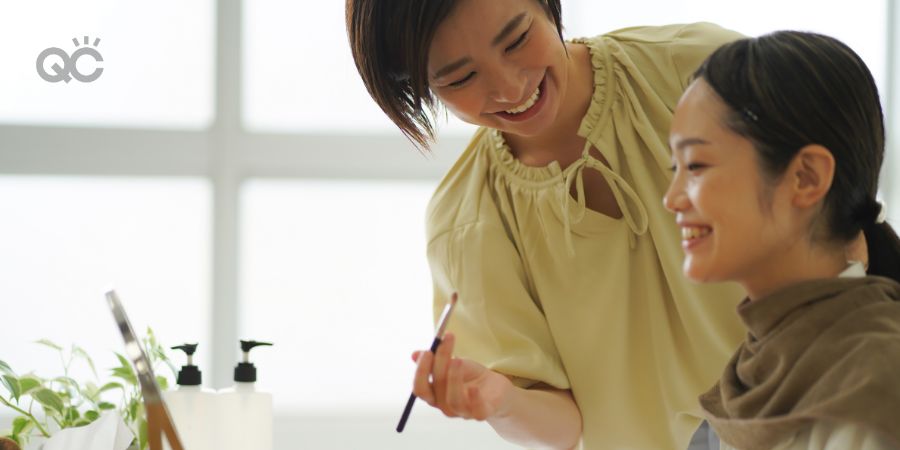
1. Develop your brand.
Developing the brand for your makeup business is such an important part of your journey. Starting off in professional makeup artistry can be intimidating. Initially, you might feel the sway to follow what everyone else is doing. However, I chose to remain true to my style, which was clean, classic, and natural.
In time, people will recognize the consistency of your style and begin to identify you as an artist within that specific type of artistry. Just keep in mind that branding does not only incorporate style alone. Rather, it represents the entire package, as well as how potential clients will identify you.
2. Develop your makeup business logo.
The creation of my logo was another part of my branding. When people saw the image, it was to represent me as an artiste and my services. I wanted the image to portray cleanness and elegance, while also having a hint of modernity. I ran through some ideas I had with a graphic designer, and the final image was one I was pleased with.
3. Always maintain professionalism.
Once I started the process of brand development for my makeup business, everything had to be in alignment with it. As such, this included the standard of service I was offering to my clients. I wanted to ensure that I always maintained professionalism. Importantly, this applied even if the clients were my friends, as well as if my services were complimentary.
From the beginning, I knew the service they received from me was their only real experience. The impression I made was what would determine whether or not they’d ever want to recommend me to others. And, of course, this is vital, since word-of-mouth is huge in the beauty community!
For me, professionalism also included:
- Communication. This involved early discussions regarding clients’ thoughts and ideas of the makeup look for the event. It needed to be inclusive of attire and jewelry, in order to ensure the makeup application was cohesive with the entire image.
- Scheduling. Knowing where your makeup application fits within the overall plan of the event is important. It allows the client to realistically think of the time needed to arrive at a venue, or be prepared for the service. Based on the time, the client can determine if he or she will dress before the makeup service or afterwards. It also allows you as the artiste to plan your day accordingly.
- Punctuality. Discussing the tentative schedule allows you to be on time for your client. Should unexpected instances occur and you foresee a delay in your arrival, inform the client as soon as possible.

4. Maintain a pleasant personality.
Depending on the event, the client may be flustered or anxious. You, however, are the professional. As such, you should always stay calm and pleasant. There was a time when one of my clients arrived late. As a result, our plans of shooting at one of the locations needed to be changed. The client was flustered and apologetic. On top of that, their hair was yet to be done.
But I remained calm and coordinated with the photographer on the new plans. Moreover, I ensure that my client remained the center of attention for her special occasion and reassured her that she was going to look great. And she did!
How did YOU grow your makeup business? Let us know in the comments below and share your top tips! And don’t forget to connect with me in QC Makeup Academy’s free Virtual Classroom on Facebook. I hope to see you there!
Thanks for reading!

